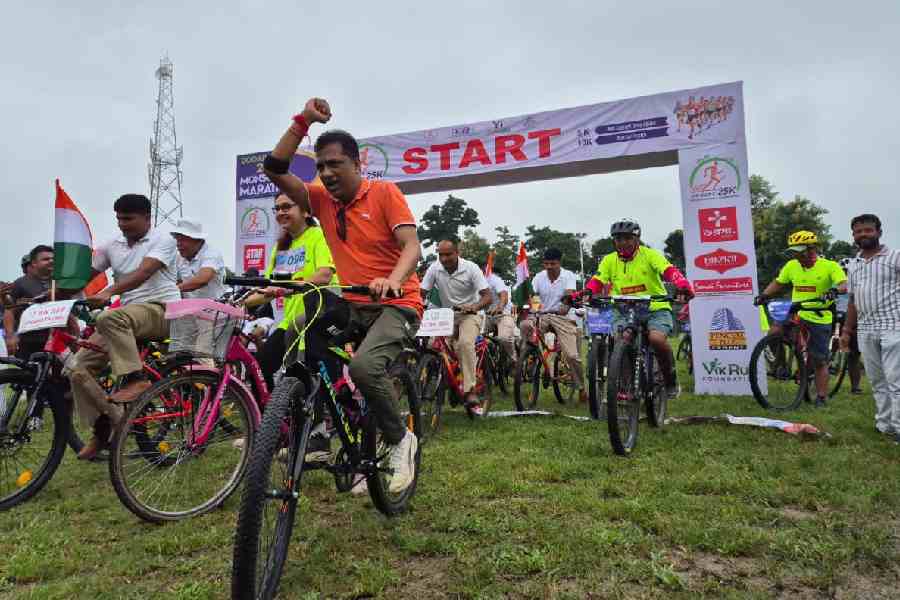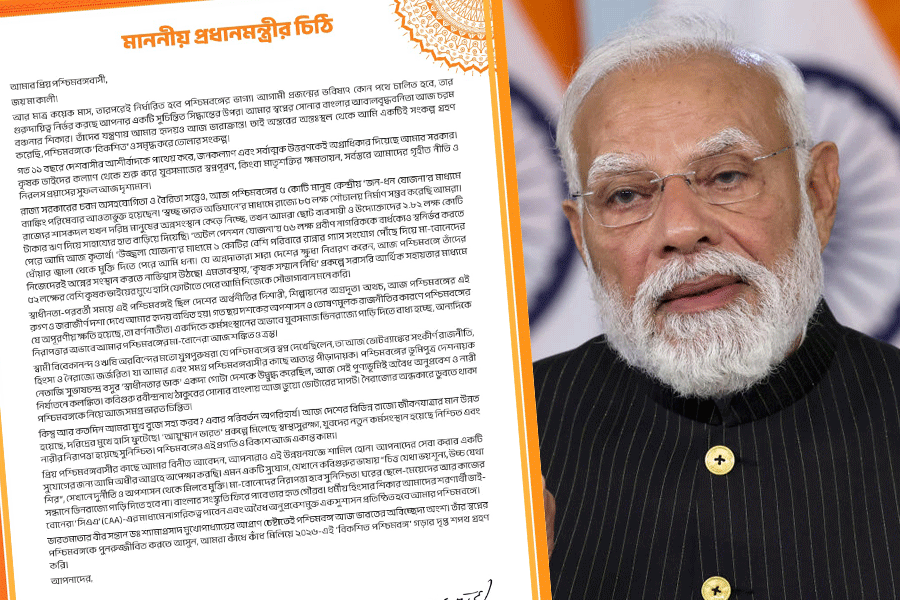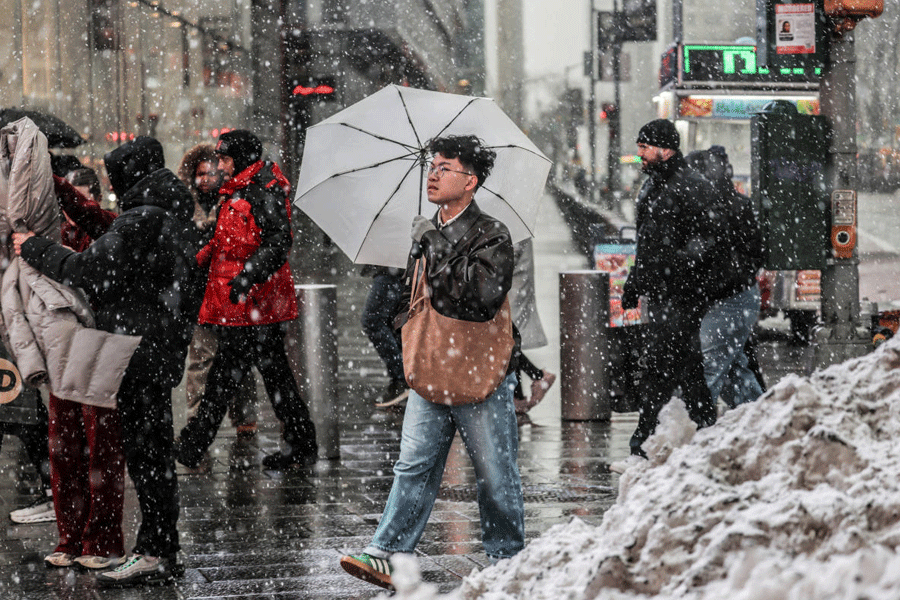In a bid to turn the rainy season into a tourist draw, the Dooars 25K Monsoon Marathon and Tourism Festival was inaugurated on Friday evening at Falakata Town Club, with officials and stakeholders aiming to brand the Dooars as a monsoon destination beyond its famed forests.
Alipurduar district magistrate R. Vimala, who opened the three-day event, said the initiative sought to counter the annual tourism lull caused by forest closures between June 15 and September 15.
Falakata is 37km from the district headquarters of Alipurduar.
“We want to show visitors that, apart from forest activities, there are plenty of things to do here during the monsoon,” she said, expressing hope for strong tourist turnout.
The Dooars’ tourism has traditionally revolved around Gorumara Wildlife Sanctuary, Jaldapara National Park and Buxa Tiger Reserve, but organisers believe diversifying activities can sustain the local economy year-round.
The festival is jointly organised by north Bengal tourism stakeholders and the Alipurduar district administration, with support from the Bhutan-India Friendship Association, Confederation of Indian Industry (CII), and Young Indians.
Thirty delegates from Bhutan and 35 from Nepal, alongside local entrepreneurs, artisans, and community groups, are among the participants.
On the inaugural day of the festival on Friday, a cultural event was held in Alipurduar.
On Saturday, events like a walkathon, cycling, a drawing competition and cultural programmes were held. A total of 76 cyclists, including 15 from Nepal, rode to Kunjanagar Eco Park, 5km from Falakata and tied rakhis around trees in a symbolic conservation gesture.
Bhutanese stalls also displayed eco-tourism models and agricultural products, while local vendors offer handicrafts, handloom, and traditional food.
On Sunday, marathon races of 25km, 10km and 5km will be held along with boat rowing on the Mujnai river in Falakata.
Raj Basu, convener of the Association for Conservation of Tourism, said the goal was to draw tourists even in the off-season. “If visitors come during the monsoon, stakeholders can sustain their livelihoods, instead of facing severe financial crises during these months,” he noted.











